Displaying items by tag: mandatory
Notice on Mandatory Training for Navigation by ECDIS
The latest Marine Notice from the Department of Transport, Tourism and Sport details the training requirements for the use of Electronic Chart Display and Information Systems (ECDIS) as a primary means of navigation.
Mandatory carriage requirements for ECDIS will be phased in between 1 July 2012 and 1 July 2018 according to ship size and class. All shipowners, masters and deck officers of merchant and fishing vessels, yachtsmen, nautical colleges and other users are required to complete both generic and ship specific training for the use of ECDIS.
The notice outlines the following as meeting the requirements for generic training:
- A NARAS Operational course completed after 1 January 2005.
- An ECDIS programme based on the IMO Model ECDIS course (1.27) approved by the Irish Maritime Administration.
- An ECDIS programme based on the IMO Model ECDIS course (1.27) approved by the maritime administration of an EU Member State or by a country recognised by Ireland under STCW 78.
As far as ship-specific training, the following areas should be covered in training delivered by the ECDIS manufacturer (computer-based training packages are acceptable):
- familiarisation with available functions
- familiarisation with the menu structure
- display setup
- setting of safety values
- recognition of alarms and malfunction indicators and the actions to be taken
- route planning
- route monitoring
- changing over to backup systems
- loading charts and licenses
- updating of software
Further details are available in Marine Notice No 51 of 2011, available to read or download as a PDF HERE.





























































